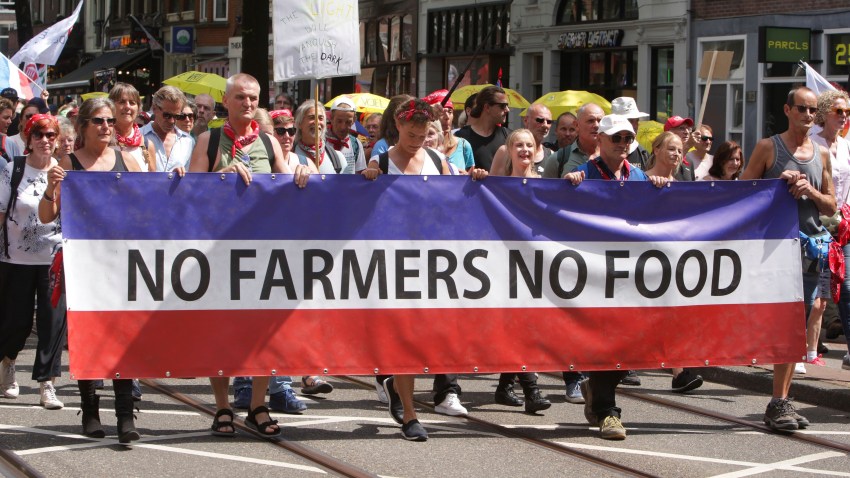Seemingly out of nowhere, the populist Farmer’s Citizens Movement, or BBB by its Dutch initials, has suddenly become the most popular party in the Netherlands. Its rise has been little short of spectacular. In last month’s local elections, whose winners choose the country’s Senate, it scored sweeping victories, becoming the largest party in the legislatures of all but one province.
The polls preceding the vote show the party’s rapid rise. In Politico-EU’s voting intention poll of polls, the center-right People’s Party of Freedom and Democracy, or VVD, of Prime Minister Mark Rutte was solidly in first place until a few weeks ago, when the BBB seemed to come out of nowhere to soar past it. Now, the BBB stands alone in first place, at 33 percent, way above the VVD’s 19 percent. It’s the first time this decade that any party has topped the VVD, which has led the government since 2010.
The unexpected rise of the insurgent party, powered by intense opposition to a law that would require Dutch farmers to severely cut their nitrogen emissions, is a taste of things to come as democracies seek to enact measures to protect the environment. The Netherlands is not the first country where efforts to impose sacrifices for the sake of tackling climate change have produced large protests, or even severe social upheaval. But it may be the first where the movement has translated into a powerful new force with nationwide legislative muscle.

